#Sebastian Hülk
Explore tagged Tumblr posts
Text
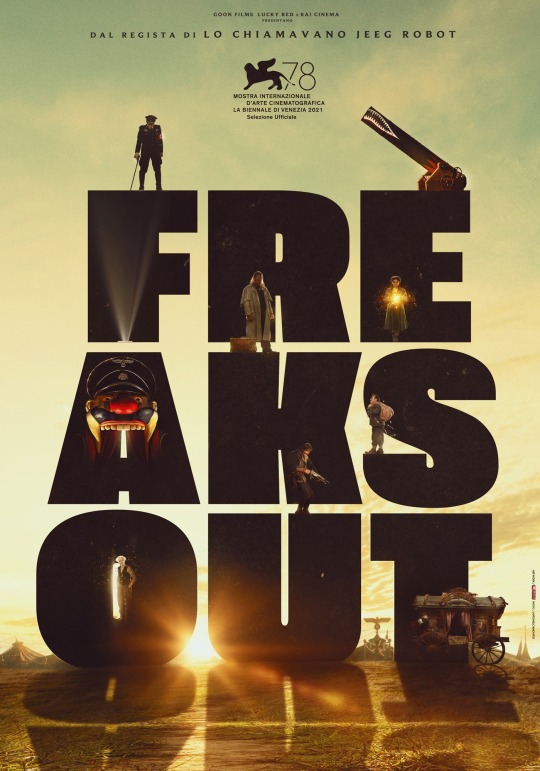
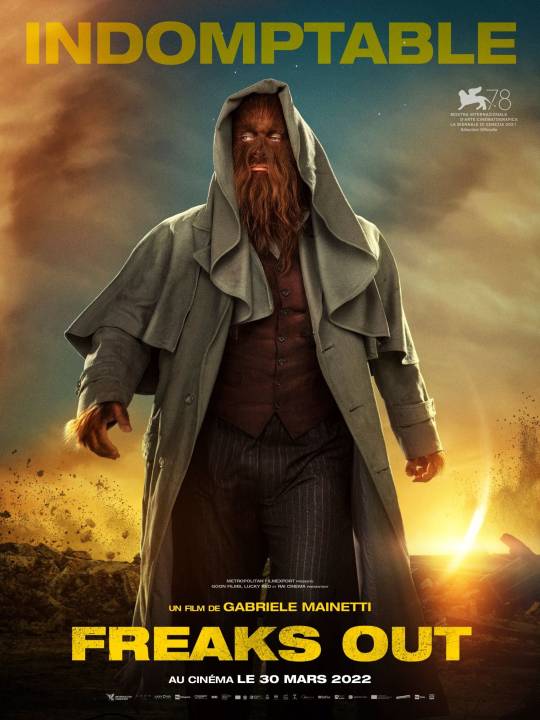

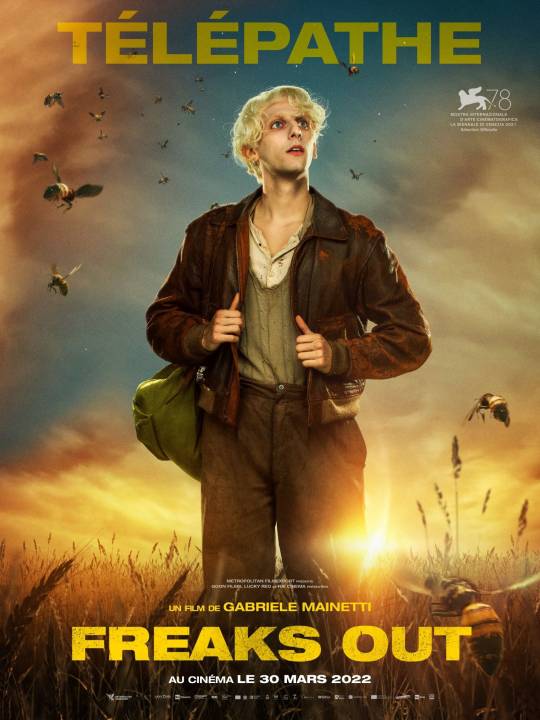
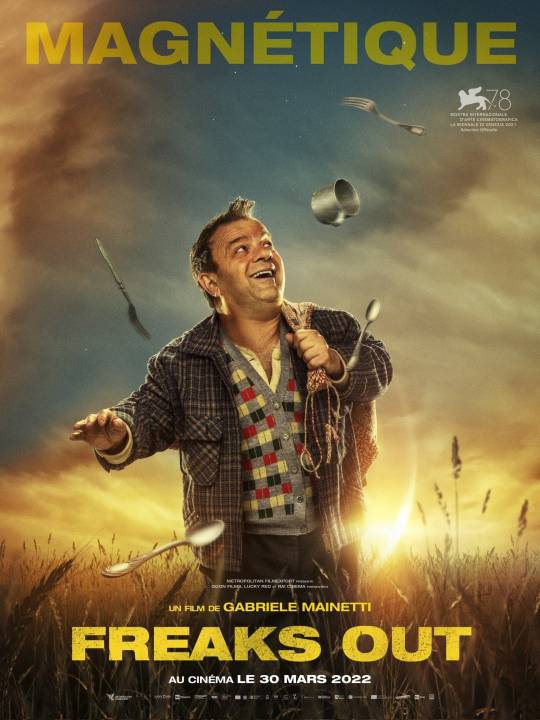


Freaks Out by Gabriele Mainetti (2021)
#movie#freaks out#gabriele mainetti#Aurora Giovinazzo#Pietro Castellitto#franz rogowski#Sebastian Hülk#Claudio Santamaria#Giancarlo Martini#Giorgio Tirabassi#Max Mazzotta#Francesca Anna Bellucci#movie 2021
9 notes
·
View notes
Text
'All Quiet on the Western Lunch' (JK, It's 'Front,' But I Am Hungry)
'All Quiet on the Western Lunch' (JK, It's 'Front,' But I Am Hungry)
How QUIET is it?! (CREDIT: Reiner Bajo/Netflix) Starring: Felix Kammerrer, Albrecht Schuch, Aaron Hilmer, Moritz Klaus, Adrian Grünewald, Edin Hasanovic, Daniel Brühl, Thibault de Montalembert, Devid Striesow, Andreas Döhler, Sebastian Hülk Director: Edward Berger Running Time: 147 Minutes Rating: R Release Date: October 7, 2022 (Theaters)/October 28, 2022 (Netflix) I finally got around to seeing…

View On WordPress
#Aaron Hilmer#Adrian Grünewald#Albrecht Schuch#All Quiet on the Western Front#All Quiet on the Western Front 2022#Andreas Döhler#Daniel Brühl#Devid Striesow#Edin Hasanovic#Edward Berger#Felix Kammerrer#Moritz Klaus#Sebastian Hülk#Thibault de Montalembert
2 notes
·
View notes
Text
All Quiet on the Western Front (2022, dir. Edward Berger) - review by Rookie-Critic
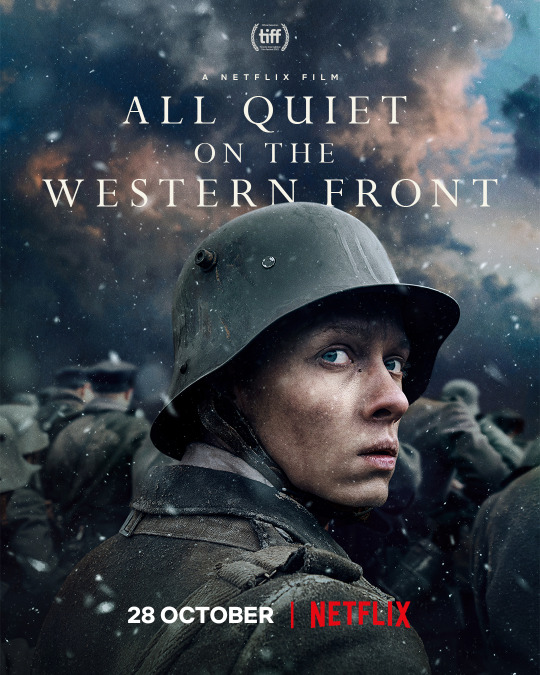
Showing the atrocities of war is always a tightrope walk. You want to show how brutal it is, you want to show people that this thing, this behemoth that has overtaken the world more times than can ever be counted, is horrid and should be avoided if at all possible, but you don't want to desensitize, you don't want to present it so fast, so hard, so unprofoundly nihilistic that it loses its meaning. You don't want to numb people to the pain or push your messaging past its limit, to make the term "war is hell" into a parody of itself. While there were a lot of things I really liked about Netflix and Edward Berger's remake of All Quiet on the Western Front, I feel like this is its biggest issue.
It revels in its "more is more" approach to showing how horrible the Western front lines of the first World War were and it causes the immersion to break and it cheapens the film's very real and very potent anti-war sentiment. The anti-war film is nothing new, we've seen this song dance a million times before, made extremely evident by the fact that this is a remake of the world's first significant anti-war film by the same name, which came out in 1930, 94 years prior to its successor. We've had close to a century of powerful, magnetic, devastating anti-war stories: from Chaplin's The Great Dictator to Kubrick's Paths of Glory AND Full Metal Jacket AND Dr. Strangelove to The Deer Hunter to Apocalypse Now to Das Boot, Platoon, Grave of the Fireflies, 1917, Jojo Rabbit, and on, and on, and on. We get the song, we get the dance, it is a very important message, but we no longer need it spoon-fed to us. The unfortunate thing about the new Western Front is that its images and iconography are intensely powerful and very profound, they get there and they do it fabulously, but then they don't stop. Every scene has an element to it that feels superfluous, that feels like they're bashing your head against the wall that says "war is hell" and screaming at you "DON'T YOU GET IT?!" The answer is, yes, I do, I got it, and I would have without a lot of the, for lack of a better term, extra that's here.
To lay out my point with an example from the film, and don't worry it's not really going to spoil anything (although if you really don't want to know then you should just skip ahead to the next paragraph), but there's a scene in the film involving the general who is in charge of our protagonist's regiment. This immediately follows what is possibly the most intense and brutal sequence in the entire film (which, again, outside of a handful of superfluous elements, is really quite a powerful sequence), and the film juxtaposes all the horror we just witnessed with this general, sitting safely in a very large dining room, eating a feast with a direct subordinate. We get extreme closes ups of everything on the table: olives, fresh bread, a whole leg of lamb, wine, which he drinks a few sips of then tosses the rest on the floor and asks for more. He does this thing with the wine several times throughout the scene. He asks his subordinate about his life back home and what he will return to once the war is over and the subordinate tells him about his family's riding saddle manufacturing/selling business. The subordinate asks the same question to the general and the general goes on a tangent about how he is a soldier who was born in the wrong time because, before this current war, his whole life had been peaceful. He says "what is a soldier without war?" Then tosses what looks like more than half of the meat on his plate to the dog sitting on the floor. This scene would be so infuriatingly impactful and meaningful if the film didn't insist on shoving the message down our throats. I didn't need close ups of the food, I didn't need the spectacle of watching him deliberately waste food and drink, I didn't need this man's hypocrisy slammed into my eyeballs a thousand times over. The atrocious nature of the scenario lies in the scenario itself! Just cut to this horrible man eating his clearly excessive meal in safe quarters after we just watched a lot of men that he is responsible for get brutally mowed down for nothing; no close-ups of the food, no excessive food waste, just the scene itself. Let him talk about how much of a soldier he is. Let this moment be peaceful, that in and of itself would be powerful enough. We, the audience, will get there. We will understand what the film is getting at, it's not that difficult to comprehend, but this is the kind of thing that permeates the entire film.
Here's the thing, I'm still going to give All Quiet on the Western Front a good score, because the truth is I still really liked it. The film has an excellent core. The acting, for the most part, is amazing. The cinematography is unbelievable and the production value is off the charts. Even the story itself, while not really new, is engaging and has a very strong foundation. I just wish it had trusted its audience more and didn't feel the need to just keep adding to itself, to keep piling on more and more until it's just hard to stay engaged. I'm sure this will win a fair amount of Oscars, and it's not entirely undeserving of them, but I don't think it entirely deserves the near-unanimous praise its been getting, because there are a fair amount of problems with it.
Score: 7/10
Currently streaming on Netflix.
#All Quiet on the Western Front#All Quiet on the Western Front 2022#Edward Berger#Felix Kammerer#Albrecht Schuch#Aaron Hilmer#Moritz Klaus#Adrian Grünewald#Edin Hasanovic#Daniel Brühl#Thibault de Montalembert#Devid Striesow#Andreas Döhler#Sebastian Hülk#film review#movie review#2022 films
4 notes
·
View notes
Photo
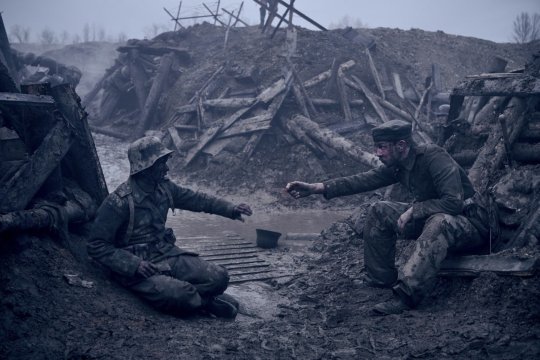
All Quiet on the Western Front (2022, Germany)
As a film buff, I retain a preference to reading a book first before seeing its adaptation. But with how many movies I see in a year – sometimes not realizing that a movie is a literary adaptation before starting it – and given how many original source materials are out-of-print or little-read (let alone how slow a reader I am), this is often too difficult a proposition. I make an attempt, however possible, to learn about the themes of an adapted book I was not able to read before heading into a film write-up. Strict fidelity to the text is not a requirement; yet a film adaptation should adhere to the spirit of the text. Any significant changes to that requires the change be done with artistic intelligence and sensitivity. Especially when the adapted book in question is significant in a peoples’ or a nation’s consciousness. Published in 1929, All Quiet on the Western Front by Erich Maria Remarque is a landmark novel in anti-war literature and remains – for its depiction of World War I on the bodies and minds of the young men sent to fight it – an important part of modern Germany’s sociopolitical identity.
Lewis Milestone’s 1930 film adaptation at Universal with Lew Ayres was the first cinematic masterpiece following the introduction of synchronized sound and the era of the silent film. Now steps in Edward Berger’s German-language adaptation for Netflix, starring Felix Kammerer, in hopes of reminding viewers that Im Westen nichts Neues (roughly “Nothing New in the West”) is, despite its universal appeal, fundamentally a German story. Berger’s All Quiet is a stupendous technical masterpiece – harrowing visual and sound effects, overflowing with blood and mud. It is among the most technically accomplished war movies this side of Saving Private Ryan (1998). Along the way, Berger’s All Quiet tries for too much, and betrays the characterizations and the intent of Remarque’s novel. With some of its violent scenes shot too aesthetically pleasing alongside an offensive and disrespectful electronic score, 2022’s All Quiet casts the French civilians and soldiers as “the enemy” rather than fellow victims. It veers perilously close to fetishizing the violence within.
Before a brief synopsis, it seems appropriate to reproduce Remarque’s epigraph to All Quiet on the Western Front here:
This book is to be neither an accusation nor a confession, and least of all an adventure, for death is not an adventure to those who stand face to face with it. It will try simply to tell of a generation of men who, even though they may have escaped shells, were destroyed by the war.
It is 1917, and the Great War has been plodding along for three years. Along with his friends Ludwig Behm (Adrian Grünewald), Albert Kropp (Aaron Hilmer), and Franz Müller (Koritz Klaus), student Paul Bäumer (Kammerer) enlists in the Imperial German Army. They all receive uniforms that, unbeknownst to them, belonged to German soldiers killed in action. Skipping almost entirely over basic training, Paul and his friends deploy to the Western Front, on the French side of the Belgium/France border. There, they befriend Stanislaus “Kat” Katczinsky (Albrecht Schuch) and Tjaden Stackfleet (Edin Hasanovic), who are several years older and have been fighting since close to the war’s beginning. These young men muddle on in drenched trenches, freezing weather, and their comrades’ horrific deaths. Parallel to the plight of Paul and his fellow soldiers is German politician Matthias Erzberger (Daniel Brühl), who secretly travels by train to the Forest of Compiègne to negotiate with French General Ferdinand Foch (Thibault de Montalembert) an armistice.
Also featuring in this film are Devid Striesow as the so-villainous-he-must-be-a-moustache-twirler General Friedrichs, as well as Andreas Döhler and Sebastian Hülk as two German officers.
This All Quiet on the Western Front occasionally frames its violent scenes as too painterly, the combat infrequently choreographed too closely to action movies (e.g., 2017’s Dunkirk is sometimes more of a suspense movie than it is a war movie and Sam Mendes’ 1917 from 2019 is an aesthetic challenge and action movie first, war film second). The opening moments are a dolly shot that linger over a patchwork of corpses strewn about No Man’s Land, with the dull rattle of machine gun fire occasionally disturbing the soil. There is an almost gawking approach to how cinematographer James Friend hovers over the bodies. One character’s death is shrouded in a blinding angelic light – applying too picturesque a technique for a non-fantastical moment. Some exceptions to this voyeuristic, perhaps fetishistic approach to framing warfare appears, including the frightening emergence of French tanks through a cloud of gas. Berger succeeds in displaying war for all its brutality. The film’s sheen, however, comes off as too aggressive and its camerawork reflecting a Netflix-esque polish.
The most glaring misstep from the screenplay by Berger, Ian Stokell, and Lesley Paterson is to include any perspectives not involving Paul and his most immediate comrades. Depicting the insights of Erzberger, Foch, and the fictional General Friedrichs removes one of the central pillars of why All Quiet on the Western Front was such a revolutionary piece of literature. Remarque’s novel, at a time when “anti-war” narrative art was in its infancy, was one of the first war narratives that concentrated entirely on common soldiers – not the officers that commanded them or the politicians that guided them.
Before focusing on Paul and his friends, let us get the officers and politicians out of the way first. The insertion of the armistice negotiations and Gen. Friedrichs’ beliefs over politicians selling the Germany army out – more on this fiction shortly – stunts Paul and his friends’ respective character growths. And despite a decent performance from Brühl, these scenes (except for the final time the elite appear) play out repetitively: Erzberger pleads to Foch for a ceasefire, Foch demands a conditional surrender that will heavily punish Germany, and Erzberger mulls over the terms of surrender. This is all distracting from the common soldiers’ experiences, and provides as much cinematic or educational value as an amateur historical reenactment.
Berger’s stated justification for including these scenes – and letting them drag on too long in the film’s second half – is reasonable. Over the last decade, the actions of far right political groups in Germany have become more visible. These contemporary groups espouse the myths that some in 1920s and ‘30s Germany used to justify the nation’s actions leading up to World War II – all which monolithized and exploited German WWI trauma to serve repugnant purposes. The emotional imbalance of the Erzberger*/Foch scenes paints France and the Allies as an unforgiving “other”, as well as the war’s eventual “victors” (the Allies did prevail in WWI, but Remarque sees no winners in warfare). For a work never meant to be an accusation and written in between the World Wars, the proto-fascist Gen. Friedrichs spits out an early form of the stab-in-the-back conspiracy theory‡. His behavior and appearance, eerily reminiscent of Allied propaganda of Germans as “the Hun”, casts him as the film’s obvious villain. These decisions all provide Berger’s All Quiet with a juxtaposition of morality more appropriate in a WWII movie than one for the Great War.
Beyond the implications of historical morality, Berger, Stokell, and Paterson’s screenplay undermines, at almost every juncture, Remarque’s critiques of the nationalism that began World War I. The decision to have Paul and his friends join the military in 1917 rather than 1914 (as it is in the book) makes it more difficult to have Paul and his friends to have conversations about the nature and the origins of this war. Instead, the screenplay keeps such dialogue to a minimum. As a result, Berger relies on cinematographer James Friend (in his first motion picture of note) to show us close-ups of Paul’s face to reveal his thoughts. In his film debut, Felix Kammerer is doing all he can with his facial and physical acting, but after a certain point this take on Paul results in him being an empty vessel.
Indeed, in Remarque’s book, Paul Bäumer is very much a reactive rather than proactive character. But that does not mean he is without deep introspection, as he is in this 2022 adaptation. Rather than someone who slowly realizes the nationalistic folly of WWI (“We loved our country as much as they; we went courageously into every action; but also we distinguished the false from true, we had suddenly learned to see.”), muses on how wars begin, and is anything but resigned to war’s inevitability, Kammerer’s Paul emotes and says nothing about these aspects of the war. Any critique from nationalism comes not from Paul in this adaptation, but from Gen. Friedrichs’ cartoonishly villainous behavior and Paul’s teachers in the film’s opening minutes. Paul and his friends are no battlefield geniuses, nor are they intellectuals. But the monotony of war – in the absence and presence of violence – grants them knowledge no classroom can give, wisdom that no elder can impart.
Berger, Stokell, and Paterson have the gall to delete entirely arguably the most critical passage in the book: Paul’s return home after being granted time for rest and recreation. After a lengthy spell fighting in the trenches, Paul’s leave completes his development as a naïve and adventure-seeking student to a detached, disillusioned man. Nationalism manipulates his father and others – mostly older men – into believing the justness of the conflict, that serving one’s country in warfare is glorious.
By contrast, Lewis Milestone’s 1930 adaptation takes Paul’s reunion with his teacher a step further than the book. In that version, instead of a chance encounter at a parade ground, Paul visits his teacher during class, with his newest students a rapt audience. The scene that follows is not subtle. But in the context of Milestone’s adaptation, the film earns it. As Paul, Lew Ayres refuses to gift his former teacher the heroic narrative he requests – paraphrasing Horace, decrying nationalism, and simply stating: “We try not to be killed; sometimes we are. That’s all.” One figures these are the words, delivered in sullen fury, by WWI’s veterans. Berger’s adaptation again leans too heavily on Kammerer to relate any semblance of the above ideas. There is no analogue scene to juxtapose the behavioral and psychological differences between battlefront and homefront, no character or even a faraway figure for Paul to verbally challenge. Kammerer’s Paul does undergo a behavioral and cognitive shift by the conclusion of 2022’s All Quiet. Yet, his transformation is not nearly as dramatic as the narrative needs it to be. These failures all stem from a screenplay that might as well have been titled something else. It is damningly incurious about Paul and his friends.
Major movie studio film scores are moving in a particular direction: amelodic, electronic, experimental, metallic, and minimalistic. It seems, by how awards voting bodies and audiences are reacting to such music, what I am about to write paints me more of an outlier than ever.
Composer Volker Bertelmann (also known as his stage name Hauschka; 2016’s Lion) concocts an anachronistic score that includes all these elements. Devoid entirely of recognizable melody (droning strings), Bertelmann’s score has one repetitive three-note idea – I refuse to call this a motif, as it lacks any sense of development from its first to final appearances – that damages and dominates the movie. Inserted in strangely timed moments and meant to intensify dread, Bertelmann’s idea begins from the root note (B♭), up a minor third (D♭), then descends a minor sixth (F). Bertelmann plays these three notes fortissimo, with synthesizer mimicking blaring brass – trust me, you know the sound and you may know its worst practitioners. When recurring underneath the strings, the idea modulates. Memorable as it may be, this metallic sound is more appropriate for hyping young men before a battle or at a rave rather than suggesting dread. Even worse: this is disruptive music. There is a healthy balance to when music should or should not accompany the imagery onscreen. One should notice music in a movie, and it should empower – but not completely overshadow – the emotions and ideas in respect to a certain scene. Bertelmann’s interruptions appear mostly in calms before the proverbial storms. These are the moments the characters and the audience should collect themselves before the killing restarts. Thus, his three-note idea abuses and instantly overstays its welcome.
Is there a place for such colorless, obnoxious, and offensively manipulative music in film? Certainly. Just not in anything entitled All Quiet on the Western Front.
On its surface, a German-language film adaptation of All Quiet on the Western Front would restore a cultural and linguistic authenticity to Remarque’s text, one of the most important literary works in German history. To some extent, Berger succeeds. His All Quiet is a technical wonder, but its human interest is nil. Remarque’s prose is not the most accomplished, but his subjective descriptions of trench warfare and his characters’ philosophizing in moments of boredom and quiet were unlike anything almost any Western reader ever encountered. We, the readers, grow alongside Paul and his friends. In 1930, the viewers saw a small group of friends – Milestone’s adaptation is unique in that Paul does not truly emerge as the main character until halfway through the film – see their youth and optimism pummeled away with each shelling and charge. A humanity remains, but tenuously. Berger’s adaptation treads an easier path by inserting a reenactment of the armistice negotiations and expediting Paul’s characterization by immediately dismantling his inwardness and sense of hope.
As a document of a generation’s experiences, a critique of that era’s nationalism that led to the conflict, and a common soldier’s processing of the war’s origin and purpose, this is a poor adaptation of Remarque’s novel. It clears the hurdle in anti-war narratives by decrying warfare as ugly. Beyond this basic expectation, it accomplishes little else.
My rating: 6/10
* Erzberger was assassinated by the far-right terrorist organization Organisation Consul (OC) in 1921. The group was disbanded the year after, but its former members were absorbed into the Nazi Party’s Schutzstaffel (SS).
‡ This conspiracy theory was primarily associated with Jews, but the Nazis also extended it to the political elite that negotiated the surrender. And as if it weren’t obvious enough, one of our German characters is stabbed in the back in the film’s concluding minutes.
For more of my reviews tagged “My Movie Odyssey”, check out the tag of the same name on my blog.
#All Quiet on the Western Front#Im Westen nichts Neues#Edward Berger#Felix Kammerer#Albrecht Schuch#Daniel Brühl#Aaron Hilmer#Moritz Klaus#Adrian Grünewald#Edin Hasanovic#Thibault de Montalembert#Devid Striesow#James Friend#Sven Budelmann#Volker Bertelmann#Hauschka#Lesley Paterson#Ian Stokell#Netflix#My Movie Odyssey
33 notes
·
View notes
Quote
Sorcery is a 19th-century radicalisation story. On the rain-lashed island of Chiloé, Indigenous teenager Rosa (Valentina Véliz Caileo) works as a servant for German farmers; speaking their language and practising their Christian religion, she is cut off from her Huilliche roots. When all the homesteaders’ sheep die simultaneously, with twine braids found on their corpses, her father refuses to give up any culprits and paterfamilias Stefan (Sebastian Hülk) unleashes his hounds on him with lethal results. Sent to live with Mateo (Daniel Antivilo), an elder involved with Indigenous secret society La Recta Provincia, the orphaned Rosa senses the potency of their rituals and realises they could bring her justice.Often shot in sepulchral twilight, Sorcery lingers in an unresolved purgatorial space between the German settlers, the vilified tribal peoples, the Spanish-speaking governor (Daniel Muñoz) begrudgingly keeping the peace in this backwater posting, and Rosa herself. Instead of hitching itself to a Judaeo-Christian sense of evil and hysterical horror mechanics – especially when Stefan’s kids go missing – Murray lets Rosa’s awakening of consciousness seep slowly through. As she deepens her involvement with La Recta Provincia and undergoes an initiation with sorcerer Aurora, pacing that at first seems cautious gathers into an almost transmutational eeriness present throughout the landscape.
Sorcery review – orphaned girl out for revenge in unsettling Indigenous horror | Movies | The Guardian
1 note
·
View note
Text
A Thin Line
A Thin Line (Serie 2023) #SaskiaRosendahl #HannaHilsdorf #PeterKurth #HadewychMinis #SebastianHulk #LuciaKotikova Mehr auf:
Serie Jahr: 2023- Genre: Krimi / Drama / Thriller Hauptrollen: Saskia Rosendahl, Hanna Hilsdorf, Peter Kurth, Hadewych Minis, Sebastian Hülk, Lucia Kotikova, Sohel Altan Gol, Aniol Kirberg, Amira Ghazalla, Özay Fecht, Julika Jenkins, Timo Fakhravar, Tala al Deen … Serienbeschreibung: Die jungen Hacktivistinnen und Zwillingsschwestern Anna (Saskia Rosendahl) und Benni (Hanna Hilsdorf) sind…

View On WordPress
1 note
·
View note
Text
All quiet on the western front VFX Breakdown By UPP
All Quiet on the Western Front (German: I’m Westen Nichts Neues) is a 2022 epic anti-war film based on the 1929 novel of the same name by Erich Maria Remarque. Directed by Edward Berger, it stars Felix Kammerer, Albrecht Schuch, Daniel Brühl, Sebastian Hülk, Aaron Hilmer, Edin Hasanovic, and Devid Striesow. Set in the closing days of World War I, it follows the life of an idealistic young German…

View On WordPress
#before and after#beforeafter#behindthescenes#breakdown#VFX Breakdown#vfx making#visual effects breakdown#visualeffectsbreakdown
0 notes
Text
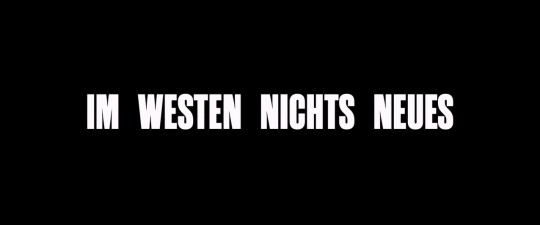





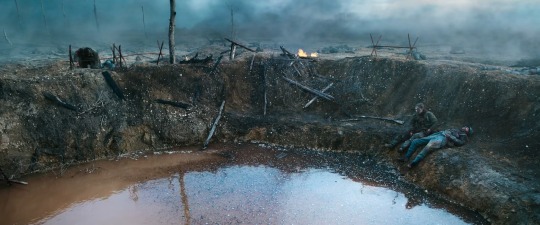


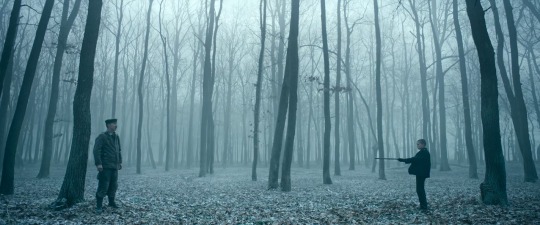
All Quiet on the Western Front (2022)
Director - Edward Berger, Cinematography - James Friend
"What is a soldier without war?"
#scenesandscreens#all quiet on the western front#Im Westen nichts Neues#edward berger#james friend#felix kammerer#albrecht schuch#aaron hilmer#moritz klaus#adrian grünewald#edin hasanovic#daniel brühl#Thibault de Montalembert#devid striesow#Andreas Döhler#sebastian hülk
273 notes
·
View notes
Photo
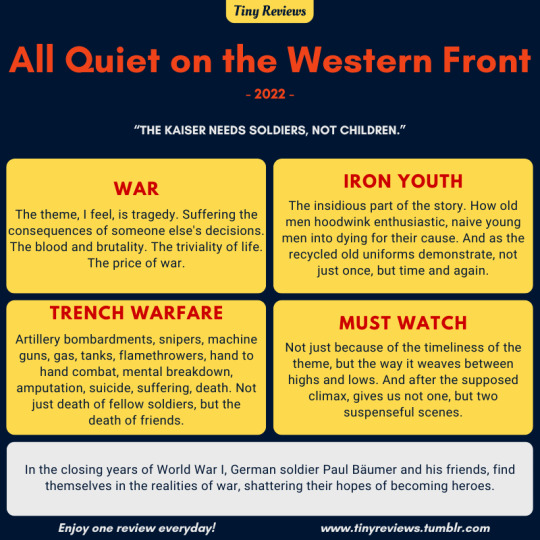
What a timely movie! Given the current Russian invasion of Ukraine. A few times a generation, we need a movie like this to remind us of the tragedies of war. I really like the tragic theme. The trivial deaths really hits home the realism. MUST WATCH!
All Quiet on the Western Front is a 2022 German epic anti-war film based on the 1929 novel of the same name by Erich Maria Remarque. Directed by Edward Berger, it stars Daniel Brühl, Albrecht Schuch, Sebastian Hülk, Felix Kammerer, Aaron Hilmer, Edin Hasanovic and Devid Striesow.
#all quiet on the western front#daniel bruhl#albrecht schuch#sebastian hülk#felix kammerer#aaron hilmer#edin hasanovic#devid striesow#germany#ww1#epic#war#anti war#movie review#2022#must watch
32 notes
·
View notes
Photo
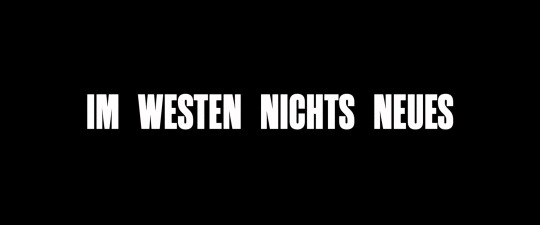

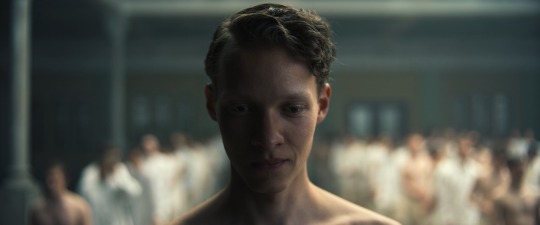
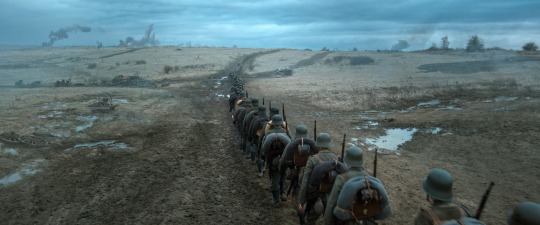
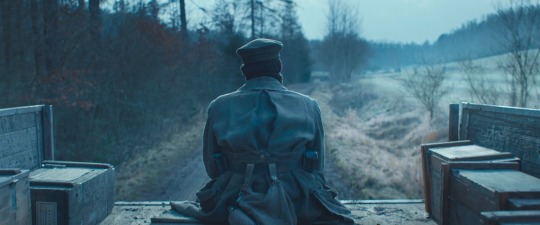
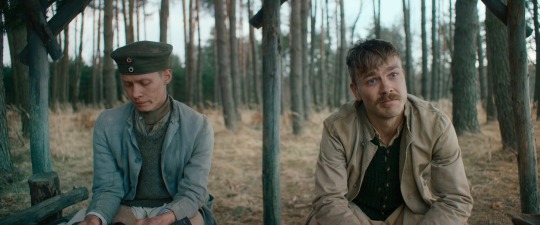
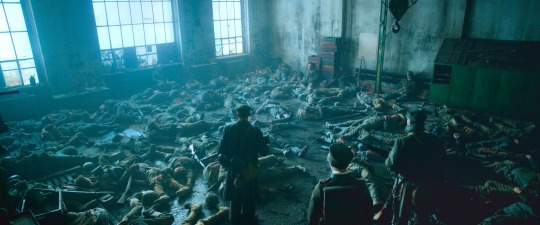
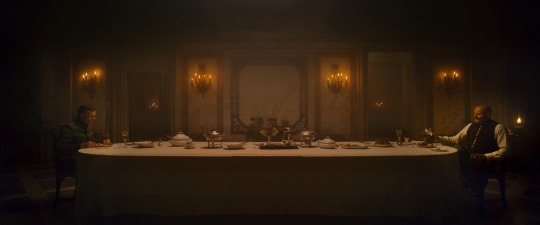
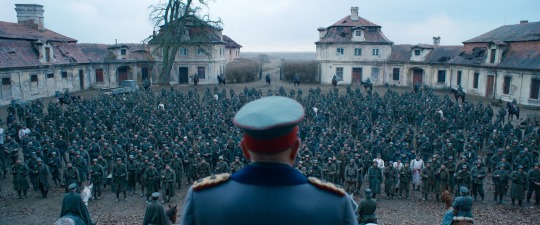
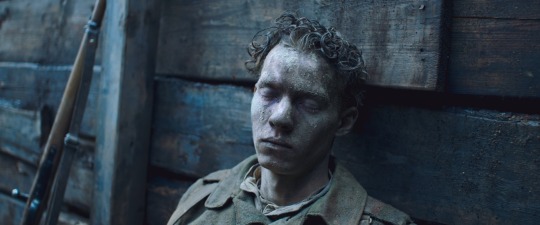
Im Westen nichts Neues, 2022 Dir. Edward Berger
#Im Westen nichts Neues#Edward Berger#Felix Kammere#Albrecht Schuch#Aaron Hilmer#Edin Hasanovic#Daniel Brühl#Sebastian Hülk
11 notes
·
View notes
Text
All of a Sudden

All of a Sudden [trailer]
Following a party in Karsten's flat, everyone goes home – except Anna. Karsten feels drawn towards the mysterious young woman. An unexpected event and a moment of weakness change everything.
Very interesting story, how your whole life can change in an instant after one imprudent decision. Your personal life, your professional life, friends and family.
It's told in a quiet, minimalistic but still capivating way, showing how Karsten feels increasingly trapped, who's portrayed in a great performance by Sebastian Hülk.
A few times the situation was so tense that I thought a sudden burst of violence could happen at any moment. But I did not anticipate the extreme turn of the tables at the end. But it's easily conceivable that in the end Karsten starts to adapt to his environment.
#All of a Sudden#Auf Einmal#Asli Özge#Sebastian Hülk#Julia Jentsch#Luise Heyer#Hanns Zischler#Sascha Alexander Gersak#Natalia Belitski#Atef Vogel#foreign#Germany#like#recommended
3 notes
·
View notes
Photo
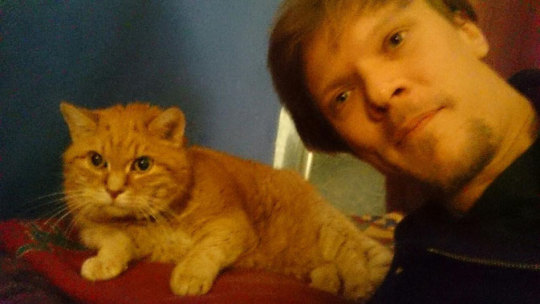
Sebastian Hülk, 2016, © hotelharakiri.de
11 notes
·
View notes
Photo









Egon Tiedemann and Claudia’s Tiedemann parallel in Dark 2x03: Ghosts (2019)
#Claudia Tiedemann#Gwendolyn Göbel#Lisa Kreuzer#Egon Tiedemann#Sebastian Hülk#Dark 2x03: Ghosts#Dark#Dark Netflix#Dark series#Dark edit#Netflix#mine
1K notes
·
View notes
Text
Some Sebastian Hülk (young Egon Tiedemann in Netflix's Dark) pictures that I've found around the internet because I've noticed that tumblr hasn't fallen in love with him yet - Part 2










17 notes
·
View notes
Text

#Dark#Dark meme#Vine reference#Shitpost#Dark series#Dark Netflix#Ulrich Nielsen#Oliver Masucci#Ludger Bökelmann#Winfried Glatzeder#Egon Tiedemann#Winden#Christian Pätzold#Sebastian Hülk#Jana Nielsen#Anne Lebinsky#Rike Sindler#Mads Nielsen#Slight Ulrich bashing
133 notes
·
View notes
Text
It’s literally a crime that there aren’t any Egon Tiedemann x reader fics out there . This man is an angel he is truly the only lawful good person in dark . And he doesn’t deserve to be ignored like that !

#egon tiedemann#dark#dark series#netflix dark#dark netflix#sebastian hulk#sebastian hülk#this man need more recognition#the world doesnt deserve him#egon tiedemann x reader
81 notes
·
View notes